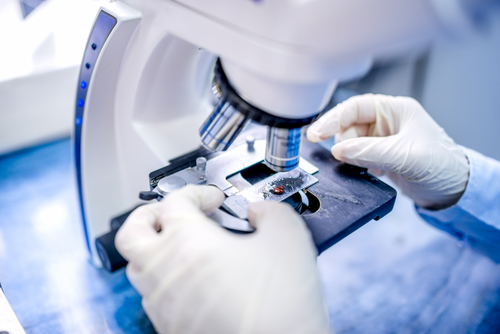Is it possible to live well when you don’t have a thyroid?
Definitely!
In this article, I’ll talk you through how you can feel your best without a thyroid. Enjoy this guide for an actionable plan to start taking back your health today.




Is it possible to live well when you don’t have a thyroid?
Definitely!
In this article, I’ll talk you through how you can feel your best without a thyroid. Enjoy this guide for an actionable plan to start taking back your health today.
Recommended Product: All your Daily Thyroid Nutrients in a one-stop bundle. Doctor Formulated, Thyroid Focused nutraceuticals that boost your thyroid output and also assist in maintaining a thriving thyroid. This bundle contains ALL your essential micronutrients, healthy omega fatty acids, Vitamin D, Calcium and Magnesium. Specifically designed for those with Hashimoto’s, Hypothyroid and Hyperthyroid Disease. Click Here
Living Well Without A Thyroid Is Possible
The Role of Thyroid Medications
Dieting When Living Without A Thyroid
The Role of Nutraceuticals
The Importance of Screening
Managing Your Comorbidities
Exercise As Medication
Why Would You Need Thyroid Gland Removal?
Living Great Without A Thyroid
I’ve had a lot of people tell me after they’ve gotten their thyroid removed, that they immediately got more involved with understanding their health. They dove deeper into things they could do, and the result was they felt better than ever before.
If your thyroid gland was removed, and you’re currently not feeling your best, I want to help you. Most importantly, I want you to know that you can get back to feeling your best – and, potentially and with the right steps, feeling better than ever before.
Even if this isn’t the answer you were looking for, the truth is that you are going to need to take thyroid medications now and forever. While it may not be ideal, it is necessary for those who do not have a thyroid. That’s just the reality of the situation.
While there might be the rare case of what we know as pyramidal tissue causing your thyroid to grow back, by and large you are going to need these medications long-term.
And that’s okay!
Treatments like these have existed for well over a century, and to some degree will always be around.
My biggest concern for you is that you have to make sure that your medications are working in your best interest.
For starters, you need to be staying at healthy levels. That means you need to do two things exceptionally well:
This is a big pitfall. That’s why I want to explain to you the five important rules you need to know to get the most accurate thyroid test results possible:
Key Insight: Testing regularly and accurately is so crucial. This is going to ensure that you always have an accurate read of your levels to inform what you do next.
When you first start on medication, you are likely going to need to test a bit more often than usual. In my experience, it’s helpful to have people test within their first couple weeks of being on medication, a month after that, and two months after that.
If they are stable, we will look at 3 months and then 6 months down the road, followed by a regimen of around twice a year. But, the point is that you need to check more at first to keep those fluctuations in mind and mark them down.
When you lack a thyroid, in most cases, it is easier to get your levels stable compared to when you have a thyroid. But, how could that be?
It might sound weird, but when you have a thyroid it is generally not making enough hormone – but it is making some hormone. The amount that it makes can change, and medications tend to fluctuate because they are working on top of an inconsistent amount.
If you don’t have a thyroid, you may need a higher dose, but what you won’t see are those fluctuations because what you make is already zero. It is now a constant variable where you don’t have to worry about inconsistent amounts creeping up now and again.
As we wrap up our section on medications for those living without a thyroid, I’ve found that a lot of people do well on the most common ones. That is going to be versions of T4 (like Synthroid), but I also have nothing against natural desiccated thyroid (NDT).
Some folks do really well on it. But, there isn’t really one type of medication that people need to be on – and, most do well on T4 when everything else goes right. So, what else needs to go right? I want to dive into that in this next section.
Dieting is still a big help for you – even when you don’t have a thyroid. Even if you’ve seen diets that promise to “heal your thyroid,” and that don’t apply to you, it kind of misses the point. The point isn’t to diet to simply heal your thyroid but to help your body use thyroid hormone in a better way.
For that reason, the biggest thing here is going to be iodine regulation. Thyroid medications all contain a lot of iodine and everything in your diet contains some, which means that if those two things reach beyond a certain threshold – your body now blocks the medication.
Key Insight: People with thyroid disease tend to have genes that make them more sensitive to the effects of iodine. This means they are also more apt to encounter issues when there is too much iodine.
Especially when you’re on thyroid medications, you don’t want to avoid it, you want to regulate it. Because even without a thyroid, iodine regulation remains so important.
It’s not that iodine is bad, it’s just that it is easy to get more than you need.
Beyond your diet, there are a lot of great micronutrients that can help with your deiodinase enzymes (essentially making it easier for your body to use thyroid hormones). This includes things like:
They are all critical parts of your body’s chemical pathways. As such, when they are not at the right levels, you can’t juggle and rearrange your thyroid levels the way your body needs them.
An important thing to know is that you want to take these nutraceuticals at least an hour after taking your thyroid medication. But, they can make a huge difference in keeping your levels stable and helping get the most out of the medication you need to take.
In almost all cases, even without a thyroid, you will still want to go through some kind of screening process (through ultrasounds). Now why would we want to do that if there is nothing there after thyroid gland removal?
First, we want to make sure there is nothing there. As I mentioned, there are some rare cases where your thyroid can grow back. You need to stay on top of that.
In that same vein, you also will want to do a self-examination once a month. As it happens, at the beginning of each month I love to do a live self-exam on all of my social media channels – it’s a lot of fun to stay on top of, so I hope you’ll join me there.
Another important step is to manage the issues that can often crop up alongside thyroid disease. To be fair, there are a lot of comorbidities that we may need to manage in the short term, and they are exceedingly common.
Some things are common and very mild, like latent iron depletion. Others, like parathyroid disease, are not as common but can show up (around 5-7% of the time for anyone with thyroid disease). It adds up to over a dozen conditions you need on your radar.
Key Insight: This comes down to your relationship with your doctor as your diagnostician. Someone who can help diagnose and navigate various comorbidities that you can keep an eye on (like fatty liver, sleep apnea, your adrenal health, and more).
After having thyroid disease, you run the risk of having a lot of other things. That’s why you can’t simply blame your thyroid medication for being the root of any issues, but work to manage any comorbidities that might be causing you to struggle alongside your thyroid.
There is so much data that showcases how exercise affects people who have gone through some kind of thyroid surgery. And, it’s overwhelmingly positive!
Additionally, it’s a big deal. One study found that you find the best benefits by balancing both cardio and weight activities. Even a little bit can have an outsized impact on:
Exercise is great for anyone, but it is specifically great for those who are living without a thyroid or needing thyroid treatment.
Before we move forward, I think it’s helpful to consider why you might have had your thyroid removed in the first place.
The most common scenario is surgery. Especially surgery that is secondary to suspicious nodules or overt cancers pertaining to your thyroid.
Next, we have to consider radiofrequency ablation (RFA). This could have been done due to a generally overactive and enlarged thyroid.
There is also a rare variant of Hashimoto’s called Ord’s disease. This can cause your thyroid to shrivel down to almost nothing.
We also have congenital hypothyroidism. It’s quite rare as well, but the latest examples involve pregnant women taking massive doses of iodine during pregnancy.
The lack of a thyroid does not affect life expectancy. That said if your medications are in the wrong amounts, that can be a bit of a different story. If you had surgery due to disseminated thyroid cancer, this can have an effect on those over the age of 45 (before then, not as much).
Long story short, it is totally possible to live well without your thyroid! In fact, some of the action steps above are easy ways to feel great fast. The most important thing is to work with a professional who can help you and help you make the most of the opportunities above.
In fact, I created the Thyroid Reset Diet to really hone in on the role of iodine and how you can regulate it in meaningful ways. As I mentioned earlier, this can really help your body make the most of the thyroid hormone you’re getting – so I do hope you’ll check it out.

P.S. Whenever you are ready, here is how I can help you now:
Dr. Alan Glen Christianson (Dr. C) is a Naturopathic Endocrinologist and the author of The NY Times bestselling Hormone Healing Cookbook, The Metabolism Reset Diet, and The Thyroid Reset Diet.
Dr. C’s gift for figuring out what works has helped hundreds of thousands reverse thyroid disease, heal their adrenals, and lose weight naturally. Learn more about the surprising story that started his quest.